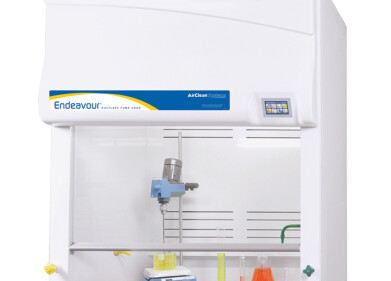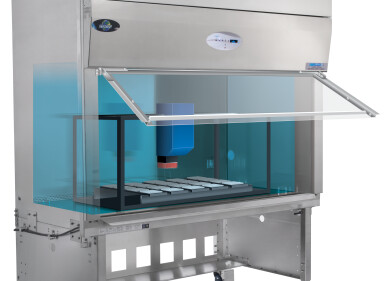Laboratory Products
New Tools and Services for Immunotherapy Discovery
May 19 2015
Amsbio has announced a new range of purified, soluble immunoreceptors involved in key signalling pathways. Together with new indoleamine 2,3-dioxygenase (IDO) assay kits these products that can be used to screen for inhibitors of protein-protein interaction, as well as neutralising antibodies that serve as positive controls for inhibition.
Immune evasion is one of the identifying hallmarks of cancer, and researchers are trying to identify the complex mechanisms that enable cancer cells to evade the host’s immune system. Cancer cells use the IDO pathway to suppress the host’s immune response in order to facilitate survival, growth, invasion, and metastasis of malignant cells. The IDO pathway is active in many tumours, providing a direct defence against T cell attack. The IDO pathway also is active in many antigen-presenting cells, resulting in peripheral tolerance to tumour-associated antigens.
The two IDO isozymes, IDO1 and IDO2, are normally involved in the metabolic breakdown of the amino acid tryptophan. IDO exhibits its immune-dampening effect by suppressing the response of macrophages and effector T cells. The exact mechanism of this immunosuppression is unclear, but it likely involves tryptophan starvation of sensitive T-cells and/or the buildup of toxic metabolites (kynurenines) from tryptophan metabolism, leading to cell cycle arrest and death of effector T cells within the cancer cell microenvironment. IDO expression also directly activates the regulatory T cells that shut down the immune response, which amplifies the suppressive effect.
Inhibitors of the IDO pathway can prevent this immunosuppression and allow the activation of immune cells that recognise and fight the cancer cells. Therefore, IDO is widely recognised as the next hot target behind the PD-1 and CTLA pathways for developing a new class of immunotherapeutic anticancer agents. Importantly, this pathway is a broadly applicable pathway, not specific to any particular form of cancer. IDO inhibition can work in collaboration with chemotherapy and immune-therapeutic drugs and treatments, including strategies using monoclonal antibodies to other immune checkpoint targets such as CTLA-4 or PD-1 and PD-L1.
Digital Edition
International Labmate 49.6 - Sept 2024
September 2024
Chromatography Articles - HPLC gradient validation using non-invasive flowmeters Mass Spectrometry & Spectroscopy Articles - From R&D to QC, making NMR accessible for everyone: Putting NMR...
View all digital editions
Events
Oct 08 2024 Gothenburg, Sweden
Oct 09 2024 Birmingham, UK
Oct 09 2024 NEC, Birmingham, UK
Oct 15 2024 Milan, Italy
Oct 17 2024 Dhaka, Bangladesh







.jpg)










